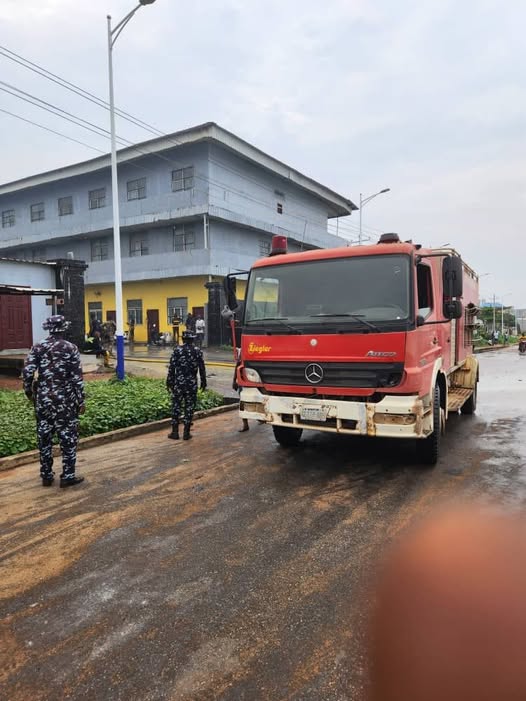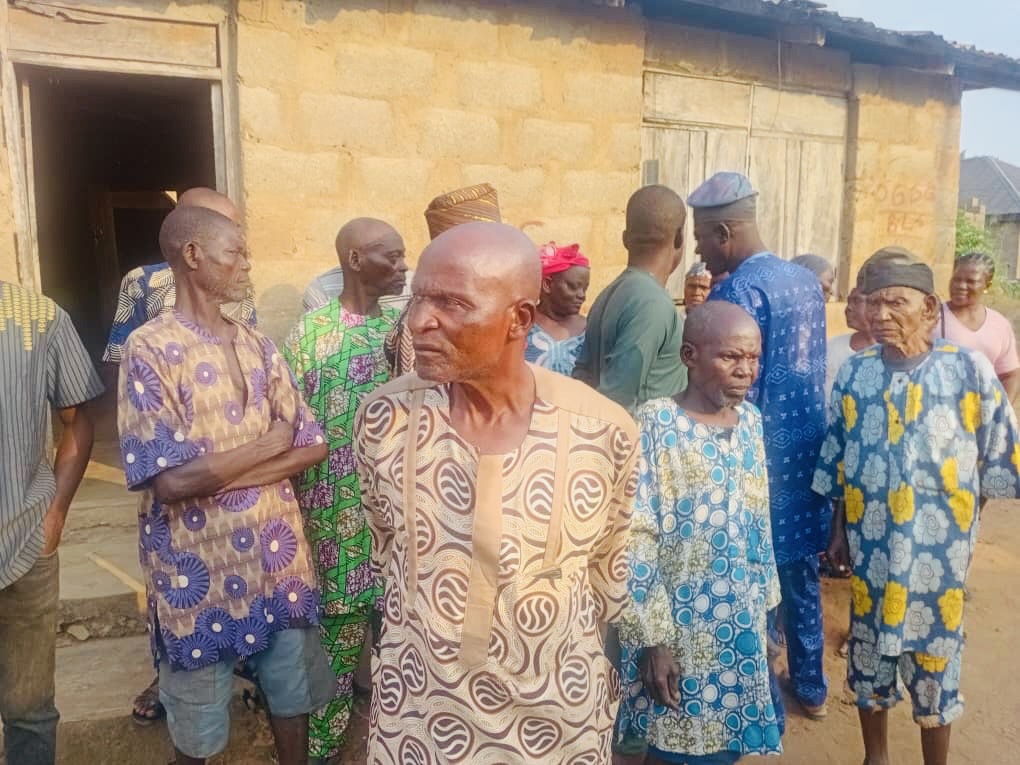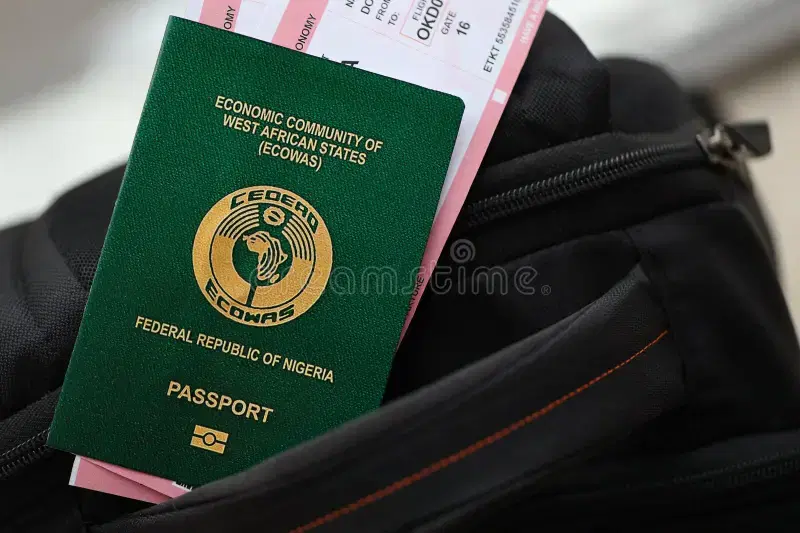The Federal Government has spent about $2.93bn servicing Eurobond debt across eight quarters under President Bola Tinubu, according to an analysis of external debt-service records published by the Debt Management Office.
The data, covering Q3 2023 to Q2 2025, show that Eurobond obligations alone accounted for 31.5 per cent of Nigeria’s total external debt service of $9.32bn over the two years.
More striking is the structure of the payments: interest charges consumed $2.43bn out of the $2.93bn spent on Eurobonds, meaning that 83 per cent of all Eurobond servicing in the period went to interest rather than principal.
This reflects the costliness of Nigeria’s dependence on commercial borrowing and suggests that expensive debt will remain a major burden on government finances for several years.
Tinubu assumed office in May 2023, making Q3 2023 the first full quarter under his administration. That quarter was also the most expensive within the two-year window, as Nigeria redeemed a maturing Eurobond.
The country paid a total of $943.66m in Eurobond obligations in Q3 2023, comprising a $500m principal redemption and $443.66m in interest. Nigeria’s total external-debt servicing for the period stood at $1.39bn, meaning Eurobonds alone accounted for 67.8 per cent of the entire foreign-debt bill that quarter.
It remains the quarter with the highest Eurobond share under the Tinubu administration. In Q4 2023, Eurobond servicing fell sharply as no principal was due. The government paid $148.57m, all of it interest, while total external-debt servicing amounted to $943.17m, and Eurobonds accounted for just 15.8 per cent of the total in the quarter.
Nigeria’s Eurobond obligations resumed their upward climb in Q1 2024, when the government paid $282.57m in interest. Total external-debt servicing for the quarter was $1.12bn, giving Eurobonds a 25.2 per cent share.
The pattern strengthened in Q2 2024, when Eurobond interest payments rose to $293.73m. With total foreign-debt servicing at $1.12bn, Eurobonds accounted for 26.2 per cent. These two quarters showed a reappearance of heavy commercial-debt costs within Nigeria’s external obligations, even outside redemption periods.
A significant spike appeared in Q3 2024, when Eurobond servicing hit $427.72m. This was entirely interest payment, and it pushed Eurobond payments to 31.9 per cent of the total external-debt service of $1.34bn. Q3 quarters are increasingly emerging as heavy repayment windows due to the structure of Nigeria’s Eurobond coupons, and 2024 followed that pattern.
The cost dropped again in Q4 2024, mirroring the drop in Q4 2023. Eurobond servicing stood at $148.57m, while total external-debt service was $1.08bn. This placed the Eurobond share at 13.8 per cent, the lowest in the two-year period.
However, the relief was short-lived. Eurobond obligations surged back to $427.72m in Q1 2025, matching the level recorded in Q3 2024. Nigeria’s total external debt servicing for the quarter reached $1.39bn, placing the Eurobond share at 30.7 per cent.
The repeated spikes in Q3 2024 and Q1 2025 highlight the growing weight of interest charges on Nigeria’s fiscal operations and the clustering of Eurobond coupons around similar maturity cycles. In Q2 2025, the most recent quarter in the records, Eurobond servicing fell to $260.07m, entirely interest.
Nigeria’s total external-debt servicing was $932.10m, giving Eurobonds a 27.9 per cent share. The PUNCH observed that Nigeria is spending far more on servicing existing Eurobonds than on reducing the underlying principal.
Of the $2.93bn spent on Eurobonds, only $500m went toward reducing the debt stock; the remaining $2.43bn was consumed by interest. The data also show that Eurobonds took between 13.8 per cent and 67.8 per cent of Nigeria’s total external-debt service in each quarter under review.
Further analysis by The PUNCH showed that Nigeria’s Eurobond commitments stood at $17.32bn as of June 2025, accounting for 36.86 per cent of the country’s total external debt, according to the data from the DMO.
This marks an increase from $15.62bn in June 2023, when Eurobonds represented 36.19 per cent of external debt. The data show that Nigeria’s Eurobond stock rose by $1.70bn between the two periods — a 10.88 per cent increase — indicating the country’s growing exposure to high-interest commercial debt.
In September, the Federal Executive Council approved plans to raise $2.3bn through Eurobond sales as part of the 2024–2025 borrowing plan, with an additional $1.1bn set aside to refinance maturing foreign obligations. The National Assembly also endorsed the foreign borrowing.
By November, Nigeria raised $2.35bn from international investors through a dual-tranche Eurobond issuance that attracted a record $13bn in bids, the Debt Management Office said in a statement.
The offer, split between a 10-year and a 20-year note, represents Nigeria’s largest order book in the international capital market and comes as the Federal Government moves to plug its 2025 fiscal deficit and broaden its funding sources amid ongoing fiscal and monetary reforms.
The Eurobond comprised $1.25bn due in 2036 and $1.10bn due in 2046, with the 10-year note priced at 8.63 per cent and the 20-year at 9.13 per cent.
According to the DMO, the sale drew participation from investors in the United Kingdom, North America, Europe, Asia, the Middle East, and Nigeria, cutting across fund managers, pension and insurance funds, hedge funds, banks, and other financial institutions.
The agency said the $13bn orderbook was “the largest ever” for Nigeria, reflecting strong appetite from a broad mix of buyers. The notes will be listed on the London Stock Exchange, FMDQ Securities Exchange Limited, and the Nigerian Exchange Limited.
In the DMO statement, President Bola Tinubu said the investor response showed continued confidence in the Nigerian economy and reaffirmed the country’s credibility in global debt markets.
“We are delighted by the strong investor confidence demonstrated in our country and our reform agenda. This development reaffirms Nigeria’s position as a recognised and credible participant in the global capital market,” Tinubu was quoted as saying.
Also, the Minister of Finance and Coordinating Minister of the Economy, Wale Edun, said the outcome underscored international trust in the government’s reform drive and commitment to fiscal stability.
DMO Director-General, Patience Oniha, said tapping long-term financing through the Eurobond market aligned with the strategy of supporting economic growth while reducing pressure on short-term domestic borrowing.
“Nigeria’s ability to access the Eurobond Market to raise long-term funding needed to support the growth agenda of President Bola Tinubu is a major achievement for Nigeria and is consistent with the DMO’s objectives of supporting development and diversifying funding sources,” Oniha said in the statement.
According to the DMO, proceeds from the issuance will be used to finance the 2025 budget deficit and meet other government funding needs. The transaction was arranged by Chapel Hill Denham, Citigroup, Goldman Sachs, J.P. Morgan, and Standard Chartered Bank as joint bookrunners, while FSDH Merchant Bank acted as financial adviser.
Nigeria last accessed the Eurobond market in December 2024, when it raised $2.2bn. The latest issuance, achieved amid tight global credit conditions and rising borrowing costs, signals that the country still has access to external financing despite the fiscal pressures it faces.
Nigeria’s foreign exchange reserves are projected to rise to $45bn by the end of 2025, driven by strong investor confidence following the country’s successful $2.3bn Eurobond issuance, according to investment house CardinalStone.
It also estimated that Nigeria’s year-end debt level would rise to N166.7tn (42.2 per cent of GDP). In a separate assessment, Comercio Partners described the Eurobond’s success as a “positive signal” for Nigeria’s fiscal outlook.
However, it warned that the gains could be undermined if exchange rate instability resurfaces.
“On one hand, the inflow boosts external reserves, provides fiscal breathing space, and enhances the government’s capacity to meet short-term obligations. On the other hand, it raises exposure to foreign exchange risk and heightens interest burdens in hard currency,” Comercio Partners said.
Experts react
Financial analysts have offered mixed assessments of Nigeria’s rising reliance on Eurobond borrowing, warning that while the instruments provide quick access to capital, they also carry cost and refinancing risks that could strain government finances if not managed prudently.
Reacting to the DMO data showing that Nigeria spent $2.93bn servicing Eurobonds across eight quarters—83 per cent of which went to interest—investment professionals said the country must balance ease of access with long-term repayment pressures.
The Managing Director/CEO of Arthur Stevens Asset Management Limited, Olatunde Amolegbe, said Eurobonds would continue to feature in Nigeria’s financing mix because of their speed and flexibility.
He noted that governments typically use a combination of debt options, explaining that “there will always be a need to have a mix of debt instruments depending on cost, timing, and speed of execution.”
Amolegbe said Eurobonds remain attractive because they are “relatively easy sources of debt” and usually free of the “onerous conditions” that accompany multilateral loans, even when the latter appear cheaper.
He added that borrowing was unavoidable for countries with large infrastructure needs, stressing that Nigeria’s concern should be disciplined deployment and repayment capacity. “Inasmuch as those funds are being deployed appropriately and we maintain the ability to meet repayment terms, then it’s not much of an issue,” he said.
A Lagos-based economist, Adewale Abimbola, downplayed the risks, arguing that Nigeria had maintained a strong repayment history. According to him, “I don’t think there’s any significant risk. Nigeria has always been meeting its Eurobond obligations,” citing the recent oversubscription as evidence of investor confidence.
Abimbola said borrowing was acceptable if tied to productive projects and warned that excessive domestic borrowing could crowd out private investment.
He argued that external commercial debt remained viable as long as interest-rate and exchange-rate exposures were controlled. “As long as interest, market, and exchange-rate risks are carefully managed, I don’t see any risk,” he said, adding that the recent currency recovery meant “currency risk will almost be inexistent if reforms are sustained.”
He noted that Eurobonds are inherently costlier because “commercial loans have higher interest compared to bilateral or multilateral loans,” referencing Nigeria’s latest issuance priced at 8.75 per cent for the 10-year and 9.25 per cent for the 20-year notes.
Finance professional and research analyst, Dayo Adenubi, offered a more cautious view, describing Eurobonds as “market-driven financing” that gives governments and corporates faster access to long-term capital but at a high cost.
He explained that repayment terms are dictated by investors and investment banks, which price the issuer’s credit risk. “It’s easy to get, but it’s more expensive,” he said. Adenubi warned that Eurobonds delay the principal burden until maturity, which encourages serial refinancing.
“You pay coupons semi-annually and the principal at maturity, so it postpones the day of judgement,” he said, noting that most issuers “use a new one to refinance once it’s time to pay.”
He cautioned that failure to achieve the expected returns on projects funded by Eurobonds could lead to distress. “If the projects do not turn out as successful as forecasted, there’s risk of default, which can get very ugly,” he said, pointing to Ghana, Sri Lanka, and Kenya as recent cautionary tales.
According to him, while multilateral loans remain cheaper and domestic borrowing theoretically easier, Eurobonds require disciplined macroeconomic management to avoid refinancing traps. “If the economy improves and the government’s finances improve, you can refinance with better terms,” he said.
punch.ng
FOLLOW US ON:
































